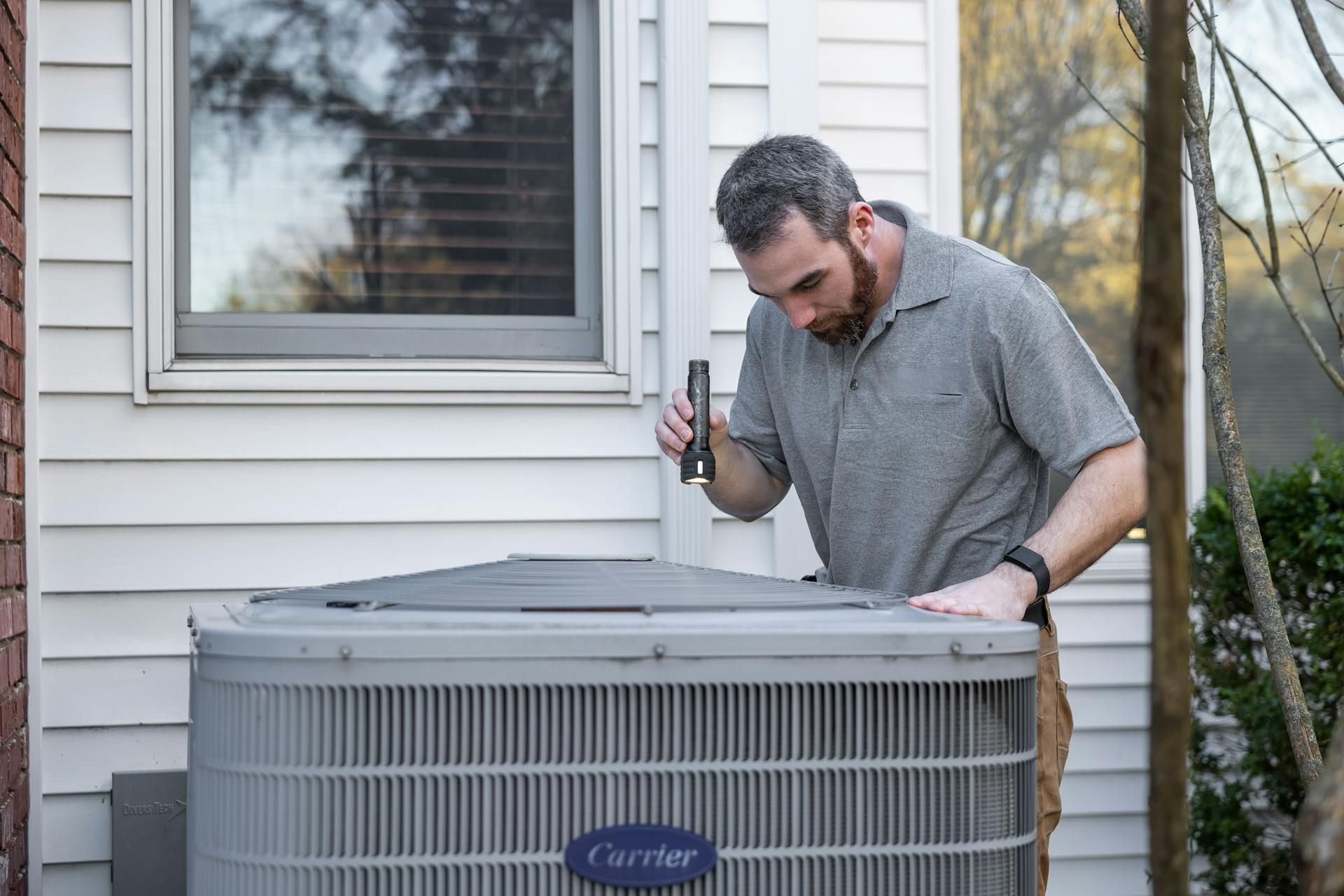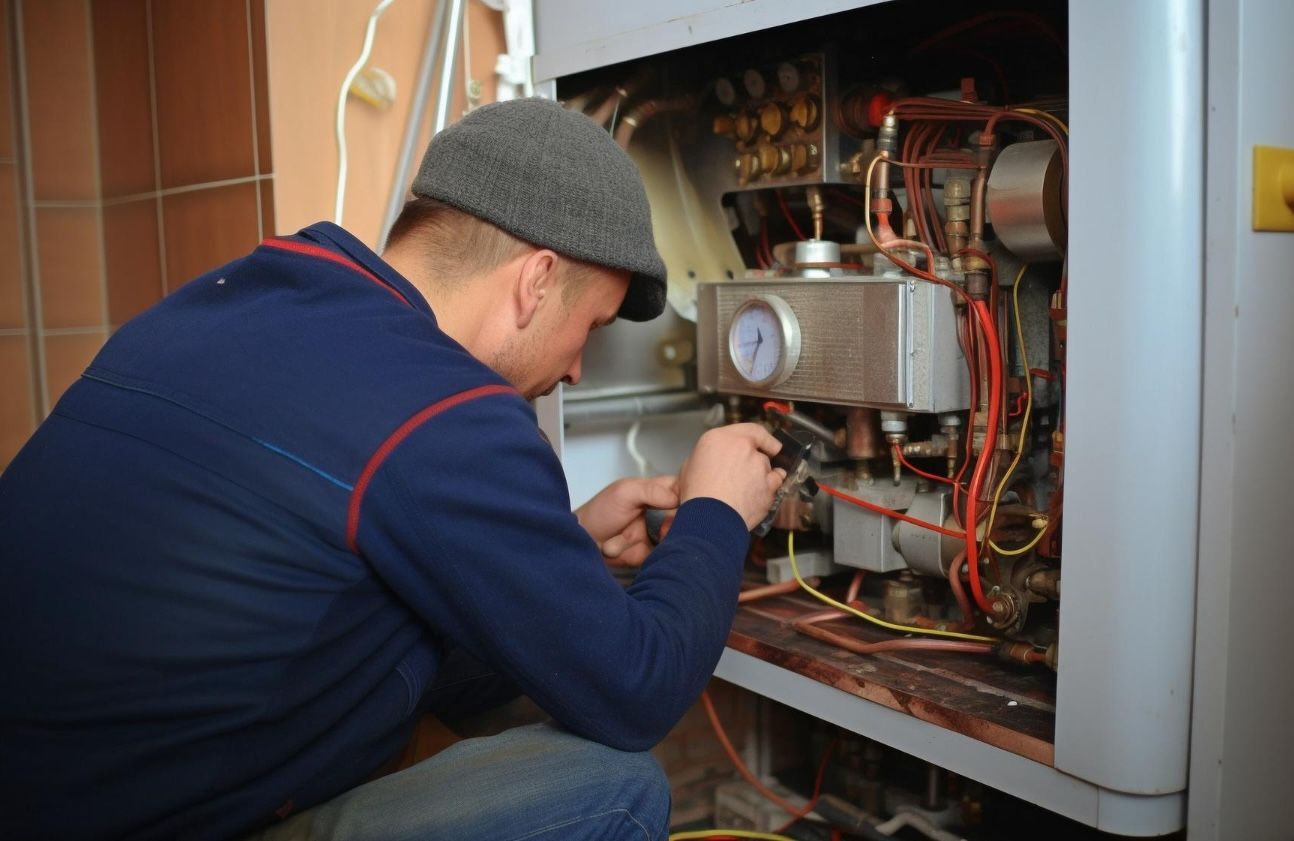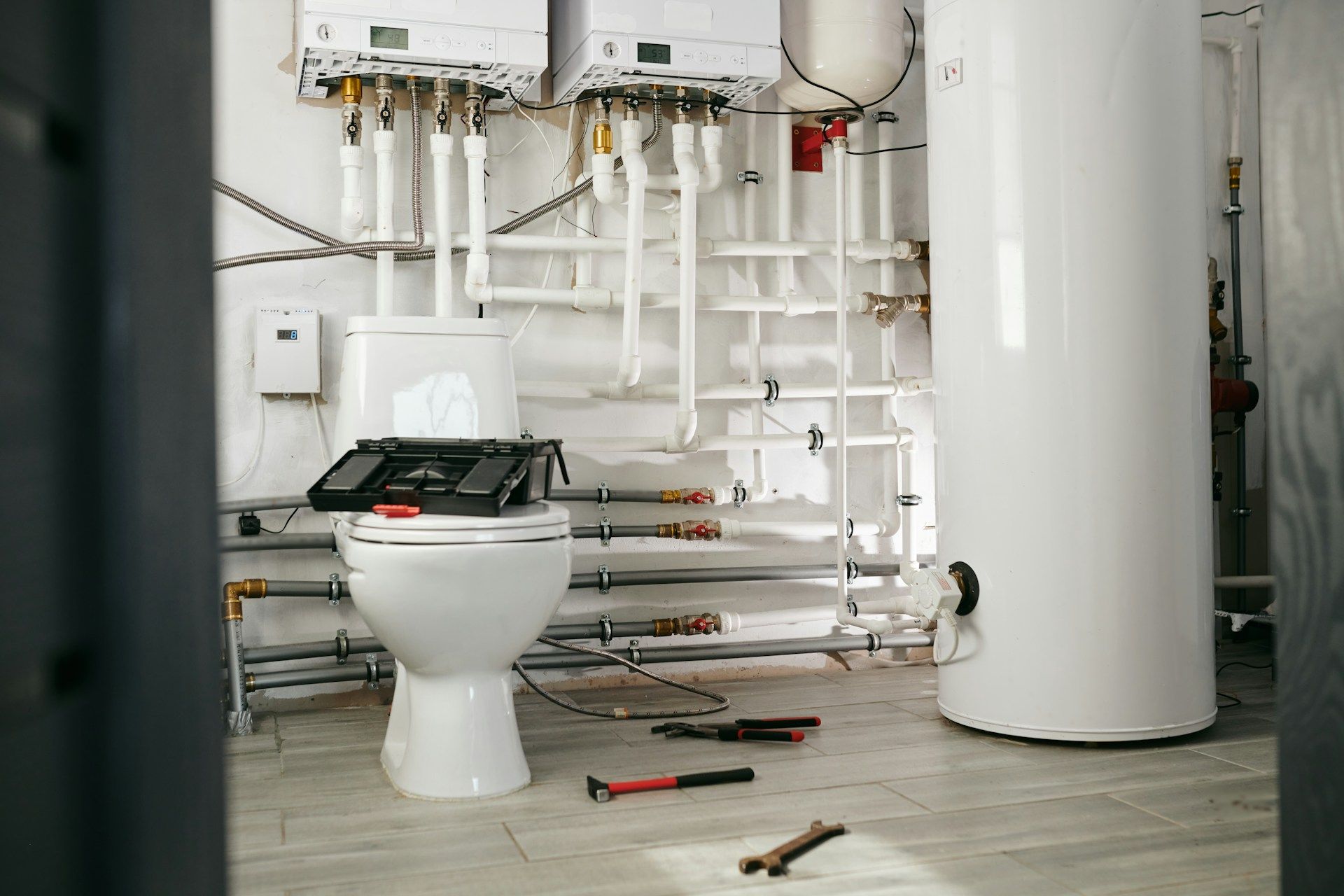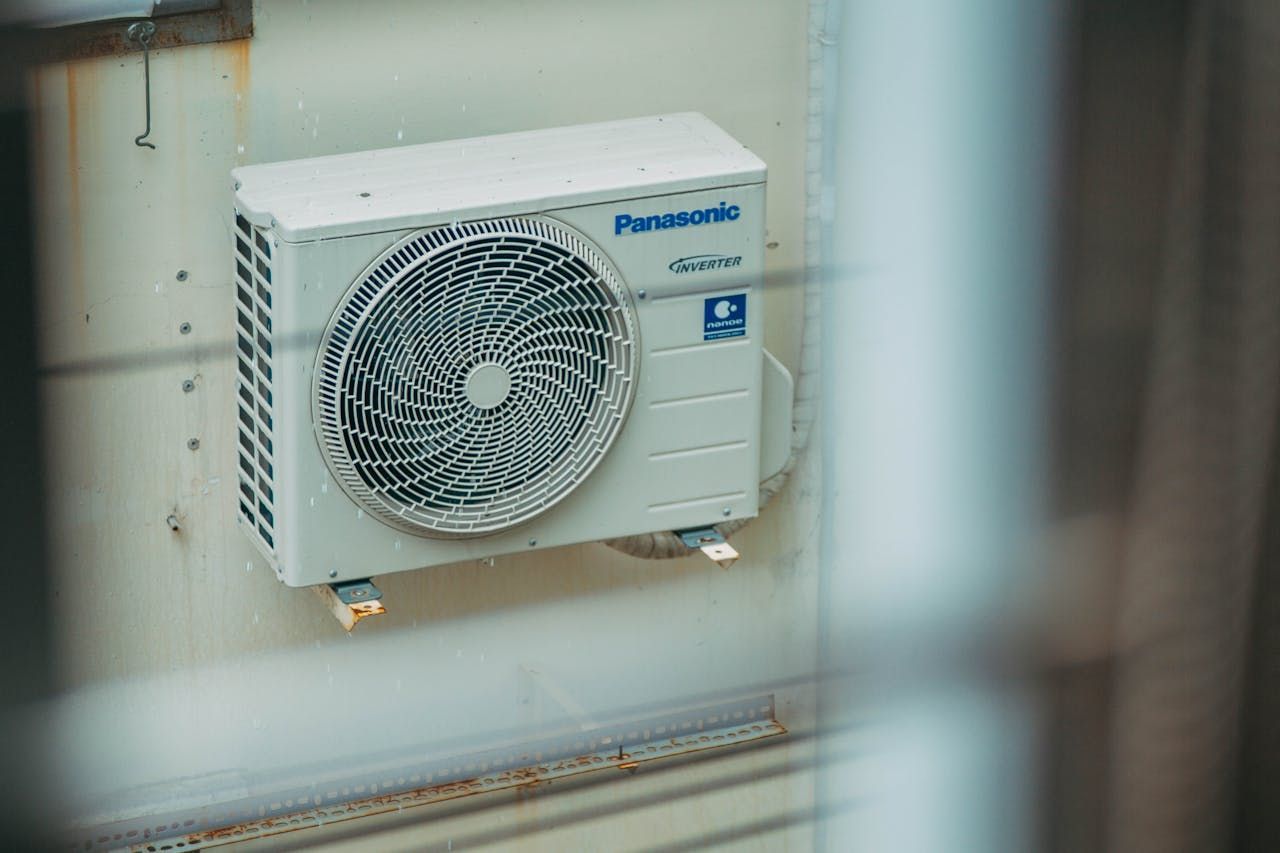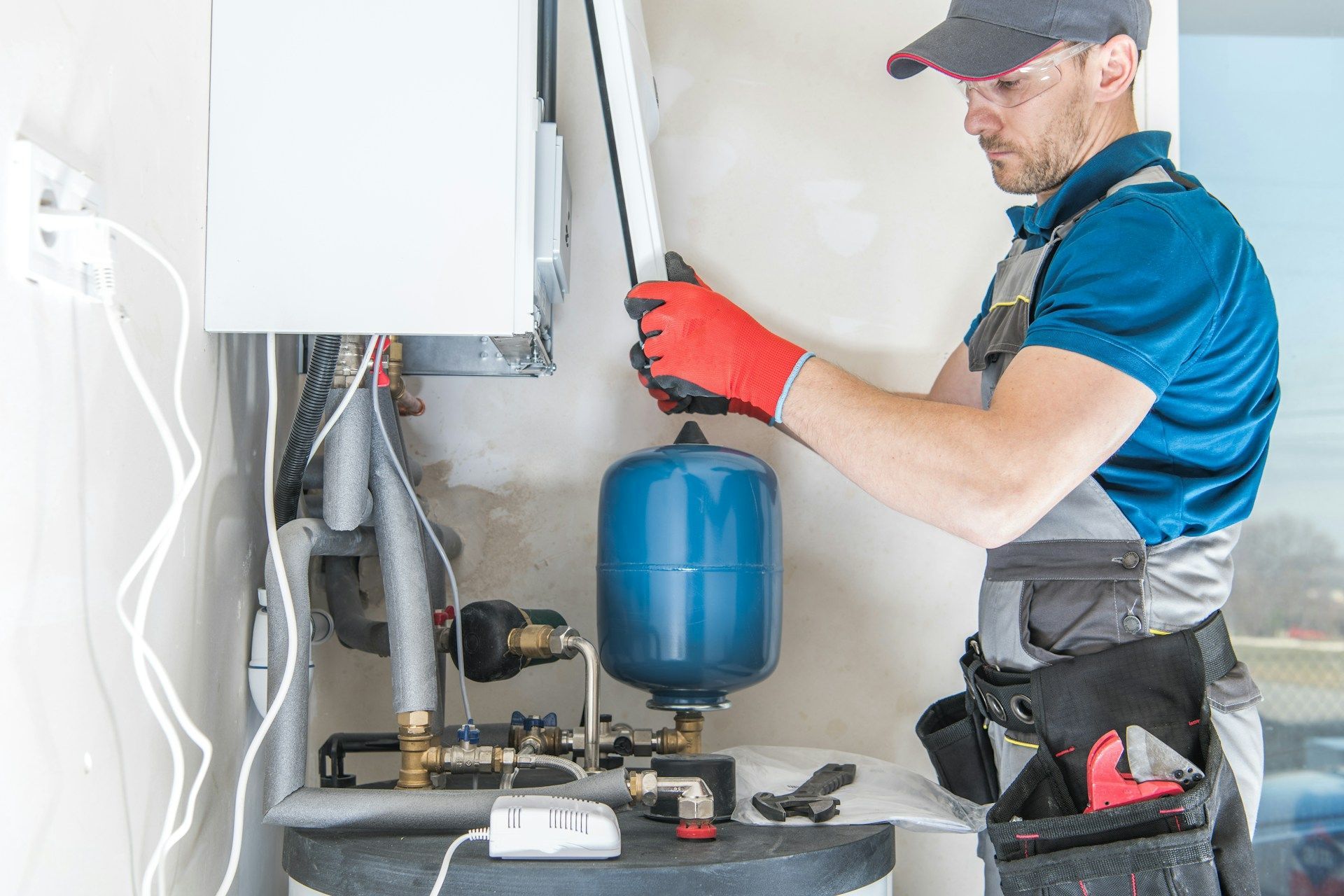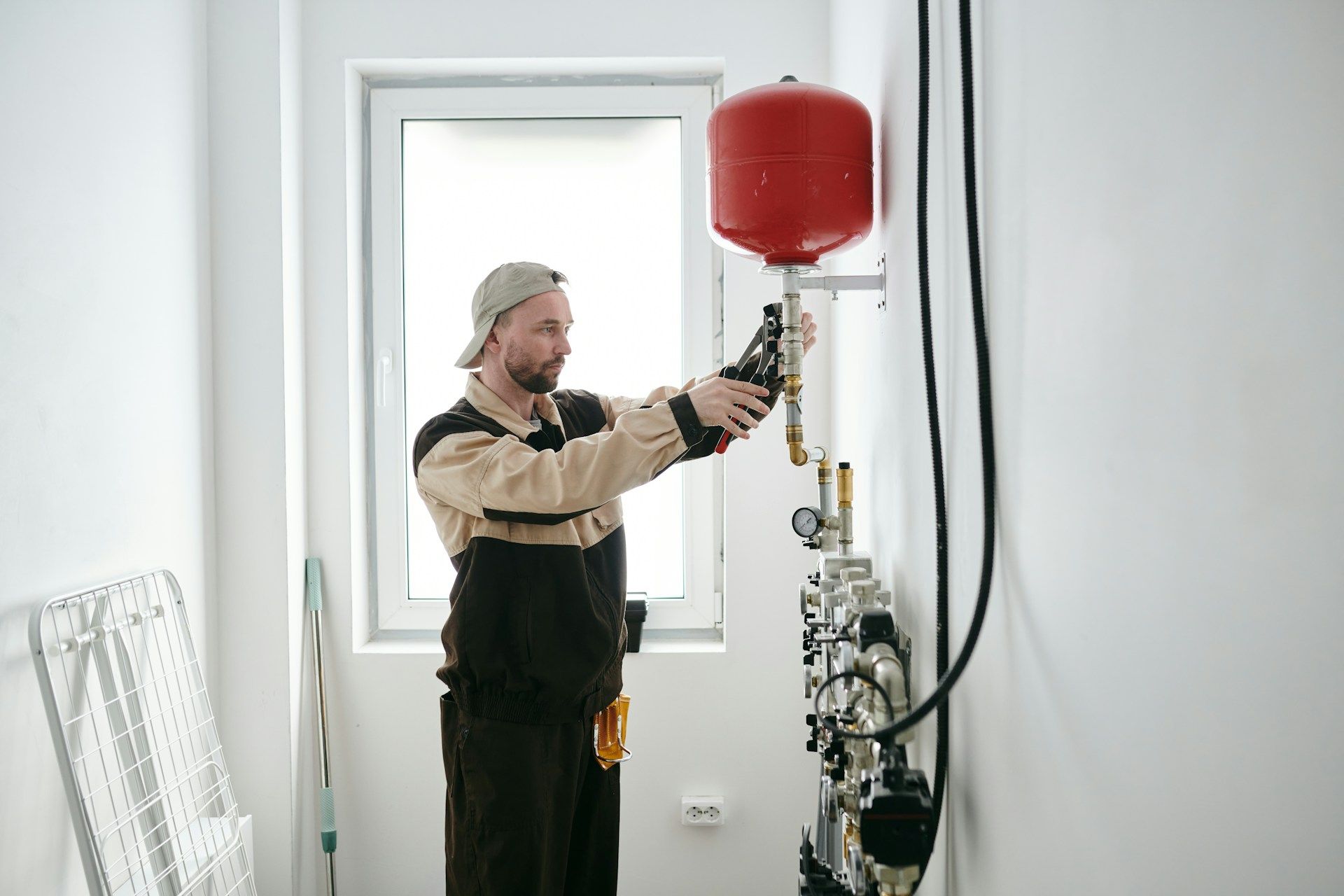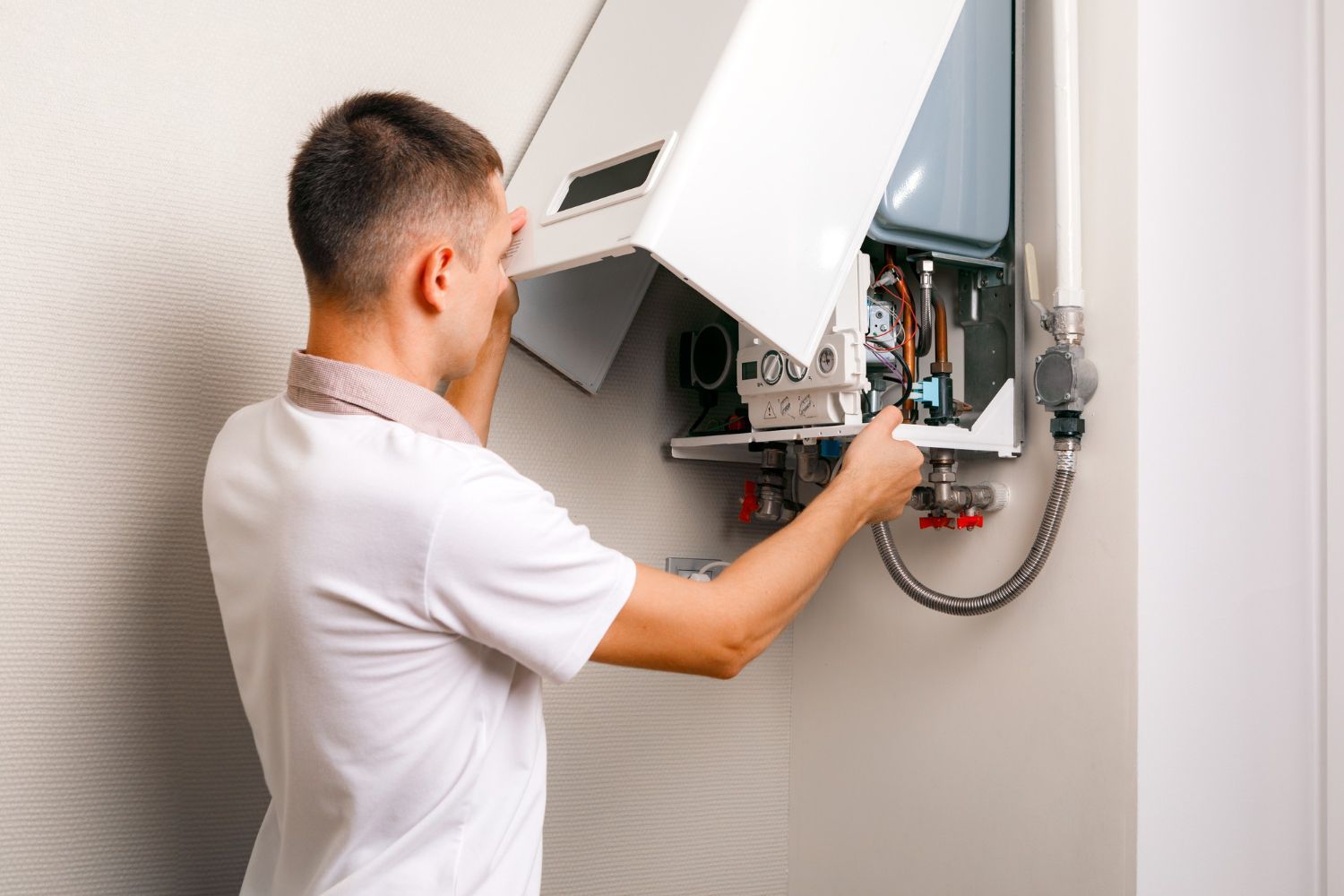Is It Time To Repair Your Boiler?
When we notice our boiler making unusual sounds or struggling to heat our homes effectively, we often wonder whether it's time for a boiler repair.
Understanding the warning signs and knowing when to act can save us from costly emergency situations and keep our Bristol, CT homes comfortable year-round.
We've compiled this comprehensive guide to help you recognize when your boiler needs attention and make informed decisions about repair timing.
Summary
- Early detection saves money: Recognizing warning signs like unusual noises, inconsistent heating, or rising energy bills can prevent major breakdowns
- Seasonal timing matters: We recommend scheduling boiler inspections before peak heating season to avoid emergency repairs during Connecticut's harsh winters
- Age and efficiency factors: Boilers over 15 years old typically require more frequent attention, and declining efficiency often signals repair needs
- Professional assessment is crucial: While we can identify obvious problems, proper diagnosis requires experienced technicians who understand complex heating systems
Understanding Common Boiler Warning Signs
Unusual Noises and Sounds
We often hear homeowners describe strange sounds coming from their heating systems, and these audio cues provide valuable insight into boiler health. Banging, clanking, or whistling noises typically indicate internal component issues that require immediate attention. When we encounter these symptoms, they often point to problems like trapped air, mineral buildup, or worn-out parts.
Gurgling sounds specifically suggest water circulation problems, which can lead to uneven heating throughout your Bristol home. These circulation issues become particularly noticeable during Connecticut's cold months when we rely heavily on consistent heat distribution.
Key Takeaways
- Strange noises like banging or whistling indicate internal component problems
- Gurgling sounds typically point to water circulation issues
- Audio cues often provide the earliest warning signs of developing problems
Temperature and Heating Inconsistencies
Uneven heating represents one of the most common indicators that boiler repair timing has arrived. When we notice certain rooms staying cold while others become uncomfortably warm, this suggests circulation problems or component malfunctions within the heating system.
Rising energy bills without increased usage also signal declining boiler efficiency. We've observed that homeowners often overlook this gradual change, but tracking monthly energy costs can reveal performance issues before they become major problems.
Key Takeaways
- Uneven room temperatures indicate circulation or component issues
- Unexpected increases in energy bills suggest declining efficiency
- Gradual performance changes often go unnoticed but indicate repair needs
Optimal Timing for Boiler Repairs in Bristol, CT
Seasonal Considerations for Connecticut Homeowners
Fall preparation offers the ideal window for boiler maintenance and repairs in our Bristol climate. We recommend scheduling inspections and necessary repairs between September and early November, before Connecticut's heating season begins in earnest. This timing allows us to address problems without the pressure of emergency situations during winter months.
Emergency repairs during peak winter season often cost significantly more due to high demand and urgent timing. By planning ahead, we can schedule repairs during slower periods when technicians have more availability and parts are readily accessible.
Key Takeaways
- Fall represents the optimal repair window before heating season begins
- Emergency winter repairs typically cost more due to high demand
- Proactive scheduling provides better technician availability and parts access
Age-Related Repair Considerations
Boilers typically require more frequent attention after reaching 15 years of age. We've found that homeowners with older systems benefit from annual professional assessments to catch developing problems early. While newer boilers might only need repairs every few years, older systems often require annual maintenance to operate efficiently.
The decision between repair and replacement becomes particularly relevant for boilers approaching 20 years old. We encourage homeowners to weigh repair costs against replacement benefits, especially when multiple components show signs of wear.
Key Takeaways
- Boilers over 15 years old typically need annual professional assessment
- Multiple component failures often indicate replacement consideration time
- Age-related maintenance requirements increase gradually but significantly
Performance Indicators That Signal Repair Needs
Energy Efficiency Decline
Monitoring monthly energy bills provides objective data about boiler performance over time. When we see utility costs rising without corresponding increases in usage or rate changes, this typically indicates declining system efficiency that requires professional attention.
Modern boilers should maintain consistent efficiency ratings throughout their operational life with proper maintenance. Significant efficiency drops often result from component wear, mineral buildup, or circulation problems that professional repair can address effectively.
We also recommend tracking how long your boiler runs to achieve desired temperatures. Systems that cycle on and off frequently or run continuously without reaching target temperatures likely need repair attention.
Key Takeaways
- Rising energy bills without increased usage indicate efficiency problems
- Frequent cycling or continuous operation suggests system strain
- Objective performance tracking helps identify gradual decline
Water and Pressure System Issues
Visible water leaks around boiler components require immediate professional assessment, regardless of size or location. Even small leaks can indicate gasket failures, pipe corrosion, or pressure problems that worsen quickly without proper repair.
Pressure gauge readings outside normal ranges also signal potential problems. We've observed that homeowners often ignore pressure indicators, but these gauges provide crucial information about system health and safety.
Discolored water in radiators or heating loops suggests internal corrosion that can damage expensive components if left untreated. This issue particularly affects older homes in Bristol where original plumbing systems may have accumulated mineral deposits over decades.
Key Takeaways
- Any visible water leaks require immediate professional evaluation
- Pressure gauge readings outside normal ranges indicate system problems
- Discolored heating water suggests internal corrosion requiring attention
Making Informed Repair Decisions
Cost-Benefit Analysis for Repairs
Repair costs versus replacement expenses require careful consideration, especially for boilers approaching their expected lifespan. We generally recommend repairs when costs remain below 50% of replacement value and the system is less than 15 years old.
Multiple simultaneous problems often indicate that replacement provides better long-term value than individual repairs. When we encounter scenarios involving heat exchanger problems, control system failures, and circulation issues together, replacement typically offers more cost-effective solutions.
Connecticut's energy efficiency rebates and incentives can also influence repair versus replacement decisions. We encourage homeowners to research available programs that might offset upgrade costs significantly.
Key Takeaways
- Repair costs below 50% of replacement value generally justify continued operation
- Multiple simultaneous problems often favor replacement over individual repairs
- Energy efficiency incentives can influence repair versus replacement economics
Professional Assessment Importance
Qualified technician evaluation provides essential insight that homeowners cannot obtain through visual inspection alone. Professional assessment tools can identify problems invisible to untrained observers, including internal component wear, gas pressure issues, and safety concerns.
We emphasize that boiler systems involve complex interactions between multiple components, making DIY diagnosis unreliable and potentially dangerous. Professional technicians understand these relationships and can identify root causes rather than just addressing symptoms.
Safety considerations also require professional expertise, particularly with gas-powered systems common in Bristol homes. Carbon monoxide risks, gas leak potential, and electrical hazards make professional assessment essential for homeowner safety.
Key Takeaways
- Professional tools identify problems invisible during casual inspection
- Complex component interactions require trained technician understanding
- Safety considerations make professional assessment essential, not optional
Conclusion
Recognizing when your boiler needs repair protects both your comfort and your investment in home heating systems. We've covered the essential warning signs, optimal timing considerations, and decision-making factors that help Bristol, CT homeowners maintain reliable heating throughout Connecticut's challenging winters.
Remember that proactive maintenance and timely repairs cost significantly less than emergency replacements during peak heating season. By monitoring performance indicators and scheduling professional assessments annually, you can avoid unexpected breakdowns and maintain comfortable indoor temperatures year-round.
For professional boiler evaluation and expert repair services in Bristol, CT, contact our experienced team at 860-585-8139. We're ready to help you determine the best course of action for your heating system needs.

